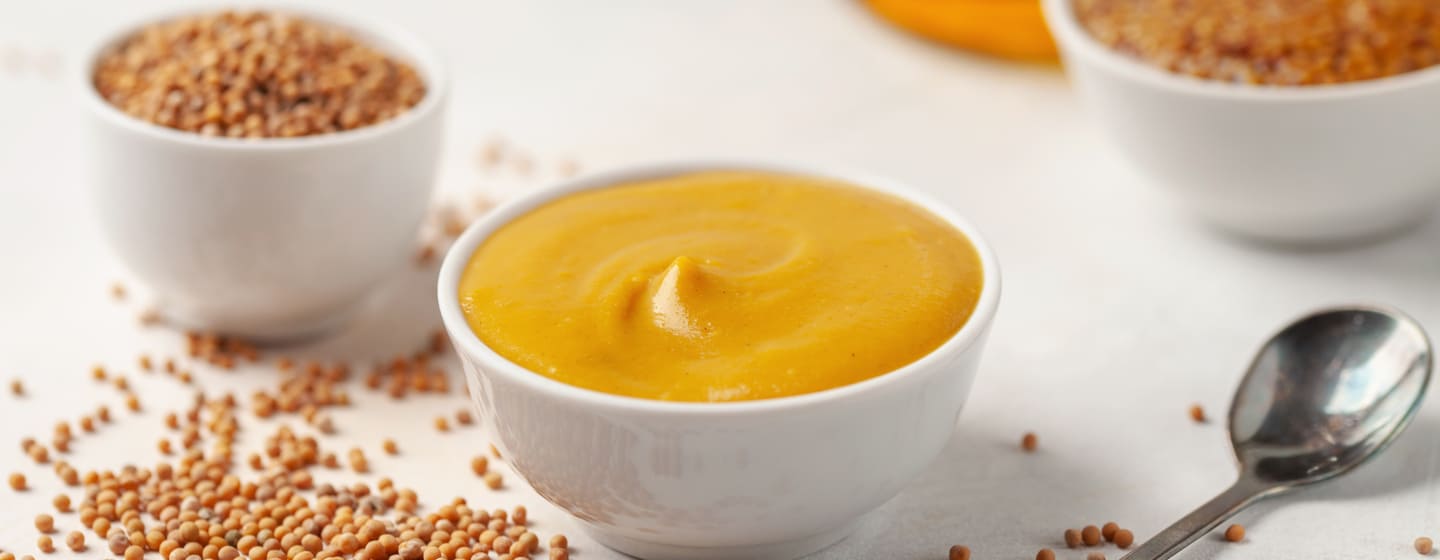
Mustard is a well-loved condiment that brings out the best in grilled meats, particularly burgers and hot dogs.
When enjoying a meal topped with this delicious condiment, you may find yourself wondering if your dog may partake in the feast by licking the mustardy remnants from your plate.
If you want to discover everything there is to know about mustard and dogs, read on!
Mustard: does your dog like it?
Mustard is harmful for dogs, thus it’s not okay to offer your dog even a tiny bit on any human food leftovers. If they lick a little bit off your plate, it probably won’t be a problem, but if they get a lot, that’s another story. Mustard of any kind, including that prepared at home, wild mustard, English mustard, Dijon mustard, honey mustard, yellow mustard, and mustard powder, should be avoided.
What is mustard so dangerous for canines?
Mustard’s negative effects on canines stem from the presence of mustard seeds in the condiment. Gastropaenic (stomach and intestine inflammation) is a condition that can be caused by eating mustard seeds. Mustard bought from the grocery store, on the other hand, may include additives that are bad for Fido.
Canine Symptoms of Mustard Poisoning
Keep a look out for the following signs if you suspect your dog has had contact with mustard:
- Loss of appetite
- Drooling
- Vomiting
- Diarrhoea
- Abdominal pain
If you notice any of the above signs, contact your vet as soon as possible. It’s also worth noting that smaller dogs will need to eat less to experience a negative reaction than larger dogs.